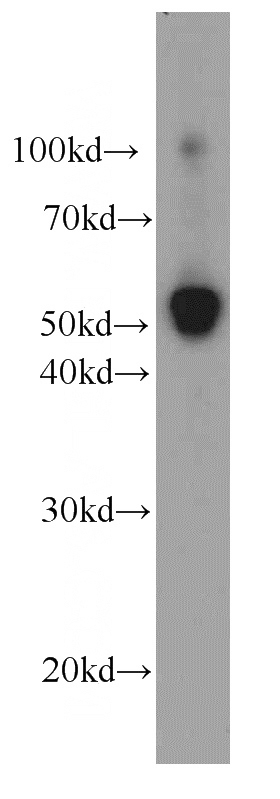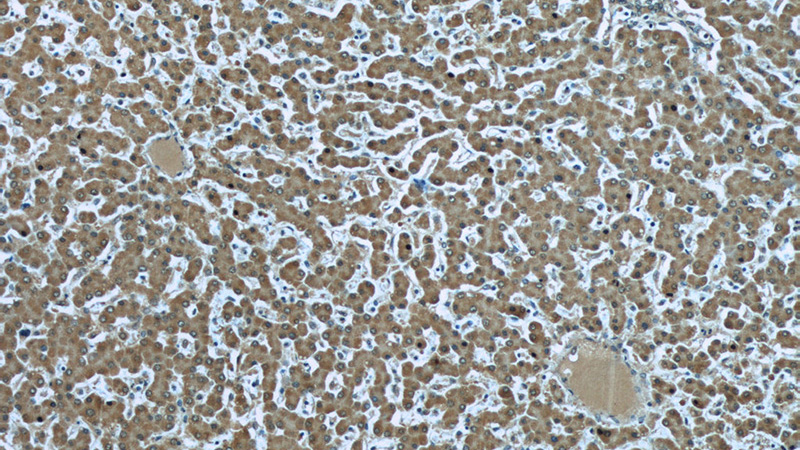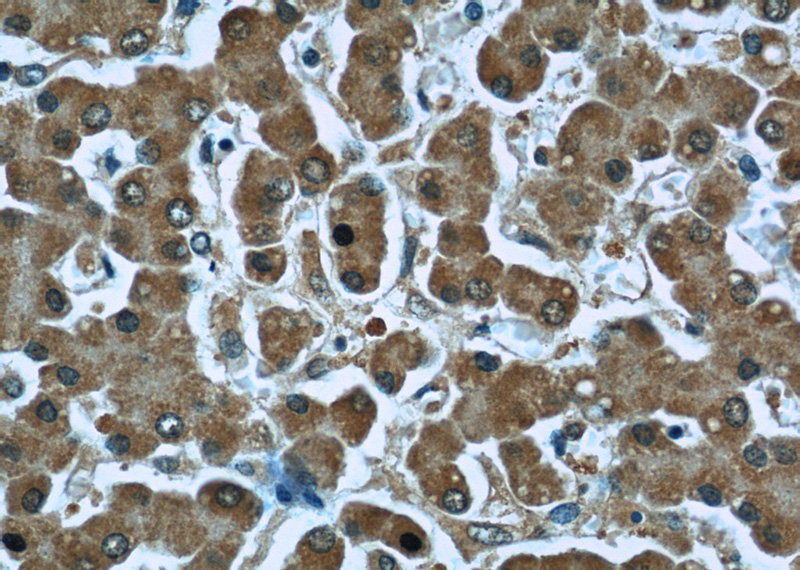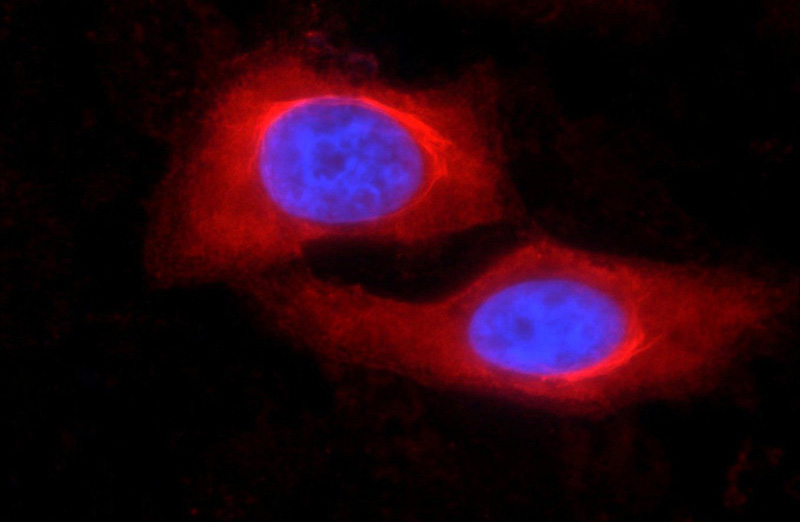-
Product Name
Iduronate 2 sulfatase antibody
- Documents
-
Description
Iduronate 2 sulfatase Mouse Monoclonal antibody. Positive WB detected in Human placenta, human brain tissue, human placenta tissue. Positive IHC detected in human liver tissue. Positive IF detected in HepG2 cells. Observed molecular weight by Western-blot: 76 kDa, 55 kDa
-
Tested applications
ELISA, WB, IHC, IF
-
Species reactivity
Human; other species not tested.
-
Alternative names
IDS antibody; iduronate 2 sulfatase antibody; Idursulfase antibody
-
Isotype
Mouse IgG1
-
Preparation
This antibody was obtained by immunization of Iduronate 2 sulfatase recombinant protein (Accession Number: BC006170). Purification method: Protein G purified.
-
Clonality
Monoclonal
-
Formulation
PBS with 0.02% sodium azide and 50% glycerol pH 7.3.
-
Storage instructions
Store at -20℃. DO NOT ALIQUOT
-
Applications
Recommended Dilution:
WB: 1:200-1:2000
IHC: 1:20-1:200
IF: 1:20-1:200
-
Validations

human placenta tissue were subjected to SDS PAGE followed by western blot with Catalog No:107274(IDS antibody) at dilution of 1:500

Immunohistochemistry of paraffin-embedded human liver slide using Catalog No:107274(IDS Antibody) at dilution of 1:50

Immunohistochemistry of paraffin-embedded human liver slide using Catalog No:107274(IDS Antibody) at dilution of 1:50

Immunofluorescent analysis of HepG2 cells using Catalog No:107274(IDS Antibody) at dilution of 1:50 and Rhodamine-Goat anti-Mouse IgG
-
Background
Iduronate 2-sulfatase (IDS) is required for the lysosomal degradation of heparan sulfate and dermatan sulfate. Mutations causing IDS deficiency in humans result in the lysosomal storage of these glycosaminoglycans and Hunter syndrome, an X chromosome-linked disease. An internal proteolytic cleavage occurs to produce the mature IDS present in human liver shown to contain a 42 kDa polypeptide N-terminal to a 14 kDa polypeptide.(PMID:2122463).
Related Products / Services
Please note: All products are "FOR RESEARCH USE ONLY AND ARE NOT INTENDED FOR DIAGNOSTIC OR THERAPEUTIC USE"
